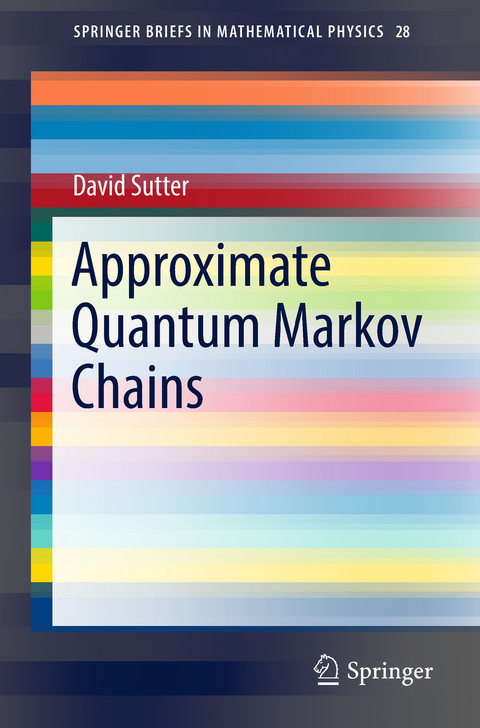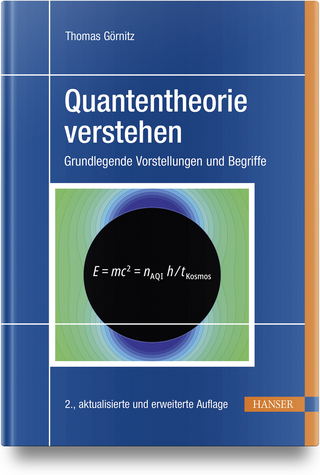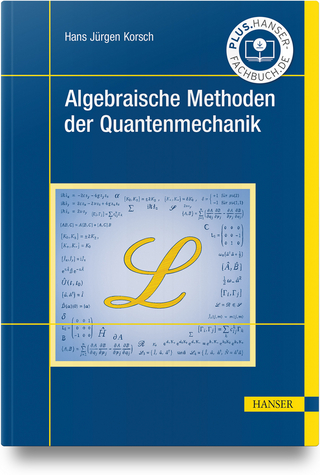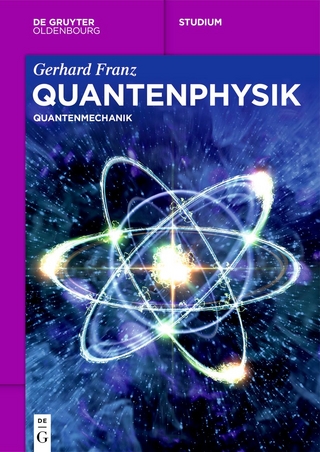
Approximate Quantum Markov Chains
Springer International Publishing (Verlag)
978-3-319-78731-2 (ISBN)
The main difficulty in order to understand the behavior of quantum Markov chains arises from the fact that quantum mechanical operators do not commute in general. As a result we start by explaining two techniques of how to deal with non-commuting matrices: the spectral pinching method and complex interpolation theory. Once the reader is familiar with these techniques a novel inequality is presented that extends the celebrated Golden-Thompson inequality to arbitrarily many matrices. This inequality is the key ingredient in understanding approximate quantum Markov chains and it answers a question from matrix analysis that was open since 1973, i.e., if Lieb's triple matrix inequality can be extended to more than three matrices. Finally, we carefully discuss the properties of approximate quantum Markov chains and their implications.
The book is aimed to graduate students who want to learn about approximate quantum Markov chains as well as more experienced scientists who want to enter this field. Mathematical majority is necessary, but no prior knowledge of quantum mechanics is required.
Introduction.- Classical Markov chains.- Quantum Markov chains.- Outline.- Preliminaries.- Notation.- Schatten norms.- Functions on Hermitian operators.- Quantum channels.- Entropy measures.- Background and further reading.- Tools for non-commuting operators.- Pinching.- Complex interpolation theory.- Background and further reading.- Multivariate trace inequalities.- Motivation.- Multivariate Araki-Lieb-Thirring inequality.- Multivariate Golden-Thompson inequality.- Multivariate logarithmic trace inequality.- Background and further reading.- Approximate quantum Markov chains.- Quantum Markov chains.- Sufficient criterion for approximate recoverability.- Necessary criterion for approximate recoverability.- Strengthened entropy inequalities.- Background and further reading.- A A large conditional mutual information does not imply bad recovery.- B Example showing the optimality of the Lmax-term.- C Solutions to exercises.- References.- Index.
"This book is mainly written in a noncommutative framework, and focuses on the robustness of the quantum Markov property under approximations. ... The monograph is clearly written and can serve as a useful introduction to the Markov property in a noncommutative setting." (Nicolas Privault, zbMATH 1407.81002, 2019)
“This book is mainly written in a noncommutative framework, and focuses on the robustness of the quantum Markov property under approximations. … The monograph is clearly written and can serve as a useful introduction to the Markov property in a noncommutative setting.” (Nicolas Privault, zbMATH 1407.81002, 2019)
| Erscheinungsdatum | 19.05.2018 |
|---|---|
| Reihe/Serie | SpringerBriefs in Mathematical Physics |
| Zusatzinfo | VIII, 118 p. 1 illus. in color. |
| Verlagsort | Cham |
| Sprache | englisch |
| Maße | 155 x 235 mm |
| Gewicht | 207 g |
| Themenwelt | Naturwissenschaften ► Physik / Astronomie ► Quantenphysik |
| Naturwissenschaften ► Physik / Astronomie ► Theoretische Physik | |
| Schlagworte | complex interpolation theory • Golden-Thompson inequality • Lieb's concavity theorem • Lieb's triple matrix inequality • multivariate trace inequalities • non-commuting matrix • quantum channels • quantum entropy • quantum error correction • quantum thermodynamics • Renyi relative entropy • Schatten norms • Spectral pinching method • strong subadditivity of quantum entropy • topological entanglement entropy |
| ISBN-10 | 3-319-78731-4 / 3319787314 |
| ISBN-13 | 978-3-319-78731-2 / 9783319787312 |
| Zustand | Neuware |
| Informationen gemäß Produktsicherheitsverordnung (GPSR) | |
| Haben Sie eine Frage zum Produkt? |
aus dem Bereich


